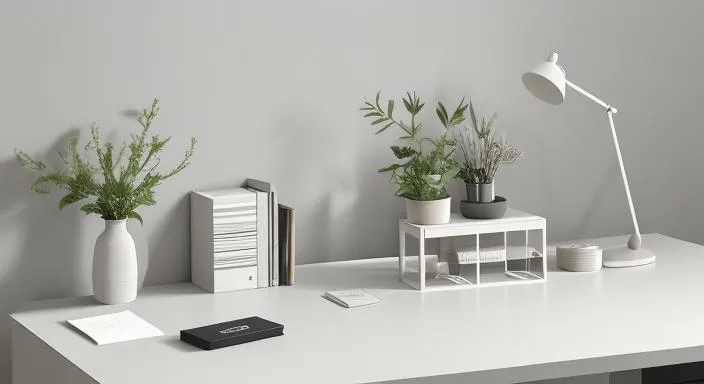In today’s fast-paced world, many people are overwhelmed by the clutter in their lives—both physically and mentally. This is where minimalism steps in, offering a refreshing approach to living with less while gaining more peace, clarity, and freedom. Decluttering is an essential part of this lifestyle, helping individuals create a serene, functional space that promotes well-being. In this blog, we’ll explore the benefits of a minimalist lifestyle and provide actionable tips for decluttering your space.
Minimalism and Decluttering: Benefits and Practical Tips to Transform Your Space
What is Minimalism?
Minimalism is a lifestyle choice that encourages simplicity in all areas of life. It’s about focusing on the essentials—keeping items that add value to your life and letting go of excess. Contrary to popular belief, minimalism isn’t about deprivation or living with nothing; instead, it’s about intentionality and living with purpose.
The minimalist philosophy can apply to more than just physical possessions—it can also extend to how you spend your time, energy, and even the relationships you maintain. By embracing minimalism, you allow yourself to focus on what truly matters, creating space for personal growth and contentment.
Benefits of a Minimalist Lifestyle
Minimalism offers numerous benefits, from reducing stress to increasing productivity. Here are some of the key advantages:
1. Reduced Stress and Anxiety
One of the most significant benefits of minimalism is the reduction of stress and anxiety. Cluttered environments often create a sense of chaos, making it difficult to focus or relax. By decluttering your space, you create a calm, organized environment that promotes mental clarity and peace.
2. Enhanced Focus and Productivity
When you have fewer distractions, it’s easier to focus on your tasks. A minimalist workspace, for example, can help improve concentration and boost productivity. Without unnecessary items vying for your attention, you can devote your time and energy to what truly matters.
3. Financial Freedom
Minimalism encourages mindful spending. By only purchasing what you need, you can save money and reduce debt. Instead of accumulating items, minimalists invest in experiences or save for future financial goals. This approach leads to greater financial stability and freedom.
4. Improved Mental Health
Studies show that cluttered spaces can negatively impact mental health. Minimalism helps by clearing out the excess, which can improve mood and overall well-being. Living in a clean, orderly environment fosters a sense of control and achievement.
5. Environmental Impact
By consuming less, you reduce your ecological footprint. Minimalism often encourages sustainable living practices, such as buying fewer, higher-quality items that last longer, recycling, and donating unused goods. This lifestyle shift can contribute to environmental preservation.
6. More Time and Freedom
When you simplify your life, you have more time for the things that truly matter—whether it’s spending time with family, pursuing hobbies, or traveling. By decluttering your schedule and eliminating non-essential activities, you gain the freedom to live a more meaningful, fulfilling life.
Practical Tips for Decluttering Your Space
Decluttering can be an overwhelming process, but with a few practical strategies, you can transform your space into a minimalist haven. Here are some actionable tips to get started:
1. Start Small
Begin your decluttering journey by tackling one area at a time. Trying to declutter your entire home in one go can be daunting, leading to burnout. Focus on a single room, drawer, or closet, and gradually work your way through your space.
2. Use the “One In, One Out” Rule
To maintain a clutter-free home, adopt the “one in, one out” rule. For every new item you bring into your home, remove an old one. This prevents accumulation and encourages you to think carefully about your purchases.
3. Set Clear Goals
Establish specific goals for decluttering. Are you looking to create more space? Simplify your daily routine? Or improve your mental well-being? Having clear objectives can help you stay motivated and focused on the benefits of decluttering.
4. Declutter by Category, Not Room
Instead of focusing on one room at a time, declutter by category. For example, start by decluttering clothes, then move on to books, kitchen items, or sentimental objects. This method, popularized by Marie Kondo, ensures that you thoroughly assess each item in a particular category before moving on.
5. The Four-Box Method
When decluttering, use the four-box method to categorize items. Label four boxes as follows:
- Keep
- Donate
- Sell
- Trash
As you go through your belongings, place each item in one of the boxes. This method forces you to make decisions and ensures that items are dealt with appropriately rather than simply moved to another location.
6. Digitize When Possible
Paper clutter can quickly take over your space. To minimize this, digitize important documents, receipts, and photos. Cloud storage and other digital tools can help keep your paperwork organized without taking up physical space.
7. Be Mindful of Sentimental Items
Sentimental items can be the most challenging to declutter. However, holding onto too many mementos can contribute to clutter. To keep these items in check, select a few meaningful pieces to display and consider letting go of the rest. Take photos of items you’re not ready to part with for digital keepsakes.
8. Adopt a Minimalist Mindset
Decluttering isn’t a one-time event; it’s an ongoing process that requires a shift in mindset. Adopt the minimalist philosophy of “less is more” and regularly assess your belongings to ensure they continue to add value to your life.
How to Maintain a Minimalist Space
Once you’ve decluttered, maintaining a minimalist space is key to reaping long-term benefits. Here are a few tips for keeping your home clutter-free:
- Regularly Purge Unused Items: Make it a habit to regularly go through your belongings and donate or discard anything you no longer need.
- Limit Impulse Purchases: Before making a purchase, ask yourself if the item will truly add value to your life or if it’s just another distraction.
- Create Systems: Organize your space in a way that promotes ease and simplicity. Invest in storage solutions that keep things tidy and out of sight, yet easily accessible when needed.
Conclusion: The Power of Minimalism and Decluttering
Minimalism and decluttering go hand in hand, offering a pathway to a more intentional, stress-free life. By adopting a minimalist lifestyle, you not only create a more organized, peaceful home, but you also free up time, money, and energy to focus on what truly matters. Start small, set realistic goals, and remember that the process of decluttering is a journey—not a destination.
With these tips, you’re well on your way to embracing minimalism and creating a clutter-free environment that supports your well-being.
Must Read: 10 Inspiring Life Lessons from Ratan Tata Sir – Singhvi Online
Let’s check out: Singapore’s Transformation: A Blueprint for Success – Singhvi Online
- Marketing Tools that help you to Grow More
- How to learn Digital Marketing Free of cost ?
- Best Free Website Builder Platform
- How tinder made itself a big company?
- Online Shopping Tricks to Save You Money
- Top 5 international job search sites
- Top 5 International Professional Networking Sites
- Animal activities
- Animal action & reaction











Leave a Reply